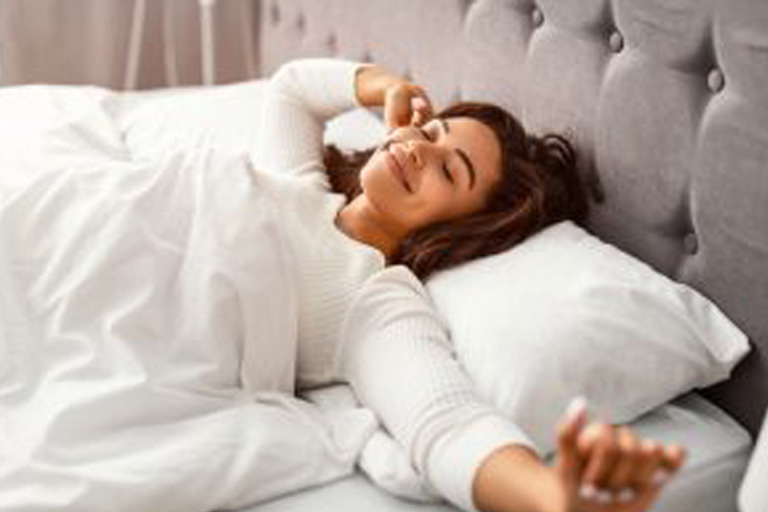Good Sleep Hygiene: Tips for Healthy Sleep

Sleep is a cornerstone of our well-being, influencing everything from our mood to our physical health. Yet, many of us struggle with achieving a restful night’s sleep. Jaime Hall, MD, of Optimum Direct Care, sheds light on the concept of good sleep hygiene and offers actionable tips to enhance the quality of your slumber.
What is Sleep Hygiene?
Sleep hygiene isn’t about cleanliness in the literal sense. Instead, it involves adopting healthy lifestyle practices that pave the way for improved sleep quality. The essence of sleep hygiene is to create an environment and adopt habits that signal to our bodies: it’s time to wind down and rest.
Why Does Sleep Hygiene Matter?
The quality of our sleep profoundly impacts our overall physical and mental health. By making small adjustments to our environment and daily routines, we can align our natural rhythms to feel sleepy when we desire and remain alert when necessary. In essence, sleep hygiene helps us harness our body’s natural tendencies for our benefit.
Tips for a Restful Night
1. Substance Awareness
Certain substances can disrupt our sleep patterns:
- Caffeine: Avoid caffeine for at least 4-6 hours before bedtime. Caffeine can be found in coffee, tea, chocolate, cola, and some pain relievers.
- Alcohol: Although alcohol may help you fall asleep, after a few hours, it acts as a stimulant, which increases the number of awakenings and overall decreases the quality of sleep later in the night. It is best to limit alcohol to 1-2 drinks per day or less, and avoid drinking within 3 hours of bedtime.
- Other Substances: Nicotine, common over-the-counter medications, and supplements may also be having an impact on your sleep. Ask your doctor about any vitamins, medications, or supplements you may be taking to find out if this is the case for you.
2. Crafting the Ideal Sleep Environment
Your bedroom should be a sanctuary for sleep:
- Keep the bedroom quiet, dark, and comfortably cool.
- If a pet regularly wakes you during the night, consider keeping it out of your bedroom.
- Use the bedroom for sleep and sex only.
- Keep computers, TVs and work materials out of the bedroom.
3. Pre-sleep Rituals
Establish calming activities 1-2 hours before bed:
- Steer clear of stimulating activities like watching TV or intense discussions.
- Embrace calming practices like reading, taking a bath, or relaxation exercises.
- Only head to bed when you’re truly tired.
4. Consistency is Key
Your body thrives on routine:
- Set the alarm for the same time each morning regardless of how much sleep occurs during the night.
- Avoid naps during the day. If you must nap, keep it short (30 minutes) and be up before 5 pm.
- Exercise regularly, at least 3 hours before sleep.
5. Embrace Natural Light
Light plays a pivotal role in regulating our sleep-wake cycle:
- Let in the light first thing in the morning, and take breaks for some sunlight during the day.
- Avoid bright lights and LED screens in the evening for at least 1-2 hours before bedtime.
6. Minimize Nightly Disruptions
Ensure uninterrupted sleep by:
- Avoid large meals within 3 hours of bedtime to reduce nighttime reflux symptoms.
- Limit fluid intake for 2 hours prior to bedtime to help reduce unwanted overnight bathroom breaks.
7. SOS: I Can’t Sleep!
If sleep remains elusive after 15-20 minutes:
- Get out of bed and go to another room. Do something relaxing, like reading or listening to music, until you are tired enough to sleep
- Don’t be a nighttime clock-watcher. This can increase stress and make it harder to fall asleep. Consider turning your clock’s face away from you.
Harnessing Technology: Apps for Better Sleep
In our digital age, technology often gets a bad rap for disrupting our sleep, especially with the blue light emitted from screens. However, when used mindfully, certain apps can actually enhance our sleep hygiene. Here are some recommended apps that can guide you toward a more restful night:
1. Calm
This app offers a range of guided meditations, sleep stories, and breathing programs designed to relax the mind and prepare it for sleep. The soothing background noises, like rainfall or gentle waves, can also create a tranquil environment conducive to rest.
2. Headspace
Headspace provides guided meditations tailored for various needs, including sleep. Their “Sleepcasts,” which are audio experiences designed to create the right conditions for healthy, restful sleep, are particularly popular among users.
3. Breathe2Relax (free)
Developed with stress management in mind, Breathe2Relax offers instructions and practice exercises in diaphragmatic breathing, a proven technique to calm the nervous system. This can be particularly useful if you find yourself feeling anxious or restless as bedtime approaches.
4. CBT-i Coach (free)
Endorsed by multiple healthcare professionals, CBT-i Coach is rooted in Cognitive Behavioral Therapy for Insomnia. The app provides a range of evidence-based tools and techniques to improve sleep habits and address sleep-related concerns. It’s especially beneficial for those who want a structured approach to tackling their sleep challenges.
Seeking Professional Guidance
If, despite your best efforts, sleep remains a challenge, it might be time to consult a professional. While sleep hygiene can work wonders, some sleep challenges require expert intervention by your physician or a sleep specialist.
Your Wellness Journey with Optimum Direct Care
At Optimum Direct Care, we’re committed to your holistic well-being. While our primary focus is on direct primary care, we are always ready to offer insights on a range of health topics. If sleep or any other health concern is affecting your quality of life, we’re here to assist. Contact us today to learn more.
